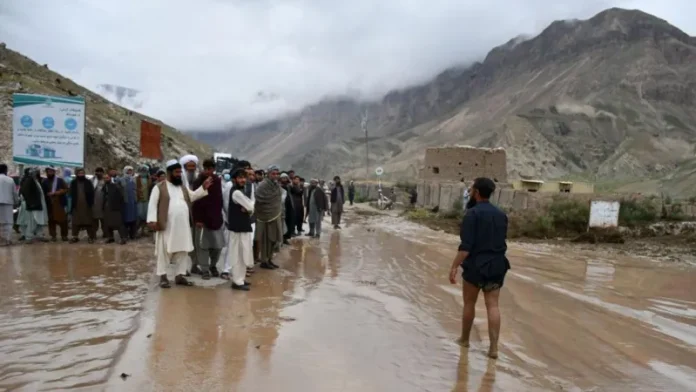Central Afghanistan has been struck by devastating flash floods, resulting in the tragic deaths of at least 50 people. The Ghor province, in particular, has been severely affected, with many more individuals reported missing. As the floodwaters surged, residents scrambled to higher grounds in a desperate bid to escape the impending disaster.
The Impact on Ghor Province
Authorities in Ghor have reported catastrophic damage. Thousands of cattle have perished, and around 2,000 houses have been completely destroyed. Many more homes have suffered significant damage. This fresh wave of heavy rain and flooding follows an already tumultuous week of flooding in both northern and central regions of Afghanistan.
Firozkoh: A City Underwater
In the provincial capital of Firozkoh, the situation is dire. Approximately 2,000 shops are submerged, and most of the roads leading to the city have been cut off. One resident described the flood as “huge and horrible,” recounting how he and his family fled to safety after warnings from officials and mosque loudspeakers. Zahir Zahid, who spoke to the AFP news agency, shared the heartbreaking experience of watching his house be destroyed by the floodwaters. “Women and children, everyone was crying,” he said, highlighting the emotional toll on the community.
An Emergency Situation
The province’s disaster management department has declared an “emergency situation,” urgently appealing for shelter, food, and water. The spokesperson for the provincial governor, Abdul Wahid Hamas, has confirmed that dozens of people remain missing. The recent flooding has compounded the devastation from last week, when over 300 people lost their lives due to heavy rains that ravaged villages in the northern regions.
Agricultural Devastation
Afghanistan, where 80% of the population relies on agriculture, has seen vast areas of farmland covered in thick mud. The prolonged period of drought earlier in the year had already stressed the agricultural sector, and these recent floods have exacerbated the situation, leaving many without homes, land, or a means of livelihood.
The Role of Climate Change
Climate analysts have pointed out that Afghanistan is particularly vulnerable to the impacts of climate change. The country, already suffering from the effects of long-standing conflict and political isolation since the Taliban took power in 2021, is one of the least prepared nations to handle such environmental challenges. The meteorological department has warned of more rain and potential floods across all provinces, adding to the urgency of the situation.
Inaccessible Regions and Hampered Rescue Efforts
One of the worst-hit areas in the north, Baghlan, remains inaccessible by trucks, according to the UN’s World Food Programme. This inaccessibility is severely hampering rescue efforts and the delivery of much-needed aid. UN agencies have expressed concern that the death toll from the latest floods may rise, as rescuers struggle to reach the affected regions.
Displacement and Desperation
The floods have displaced countless families, leaving them without homes, land, or any source of livelihood. The UN has reported that survivors of previous flooding are in dire need, with many left with nothing. The heavy rains and subsequent flooding have only added to their struggles, highlighting the urgent need for international aid and support.
A Call for Help
The situation in Afghanistan is critical. The country needs immediate assistance to address the current disaster and to build resilience against future environmental challenges. The international community’s support is crucial in providing relief and helping Afghanistan recover from this devastating natural disaster.
The flash floods in central Afghanistan have caused immense suffering and loss. With at least 50 people dead and many more missing, the situation is a stark reminder of the devastating impact of natural disasters, particularly in countries that are ill-prepared to handle them. The urgent need for aid and long-term support cannot be overstated, as Afghanistan grapples with the dual challenges of climate change and political instability.























